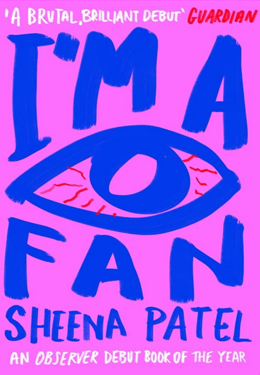When we think of literature’s female protagonists, such as Elizabeth Bennet in Pride and Prejudice and Isa in Happy Hour, there is a common theme: being likeable.
Sheena Patel’s novel, I’m a Fan, presents an unsavoury female protagonist who resorts to physical violence and emotional manipulation whilst simultaneously providing a savage social critique of patriarchal and racist social frameworks, the facade of social media, and white entitlement.
One example of this distasteful behaviour is her treatment towards her boyfriend in comparison to the way he treats her. She “hunt[s] him down…spitting contempt out in poisonous bloody bites…I intentionally belittle him in front of our friends”, whereas her boyfriend, “makes [her] mash when [she is] sad without saying, he’ll just know”.
It’s hard not to hate her.
In an interview with Sheena Patel, she explains why she chose to present the protagonist as unlikable.
“I wanted to write a non-white character in a way that would push the limits of what was acceptable, I wanted her to be a terrible person, hard to love but sympathetic.”
The limit Patel pushes is the societal roles of women, specifically women of colour, shaped by patriarchal and white-dominated frameworks. For example, desired traits include being submissive, meek, and a morally just person. By opposing these qualities, Patel diverts women’s restricted stereotype.
Sheena Patel had worries about curating such an unlikable character. She says,
“I thought I’d be cancelled because the book goes after Brown creatives, women, liberals… She’s intentionally unlikeable and violent and pathetic and right and wrong. I’d not seen a Brown woman depicted like that in literature so I was nervous.”
I’m a Fan critiques all parts of society including groups where the author herself resides, as well as unsaid judgements on modern-day issues. In the line, “She seethes with anger at the system, yet she can’t help but buy into the structures that oppress her,” the narrator not only critiques social frameworks, such as patriarchy, but also confesses her somewhat surrender to these ‘rules’.
I enjoyed this unapologetic admittance the narrator had—she knows she isn’t faultless and allows us to question that for ourselves, something, I especially, haven’t done before reading I’m a Fan.
Patel has presented us with a narrator that most readers won’t sympathise with—but that is exactly the point. The power of curating a dislikable protagonist defies gender norms like having to be submissive and kind, and also holds up a mirror to the issues many are afraid to say.
She is the voice that unveils the unjust matters happening now, in a supposedly ‘woke’ generation.
Have you read this book?
We would love to hear your thoughts on this book, perhaps you agree with our review, or, disagree?





